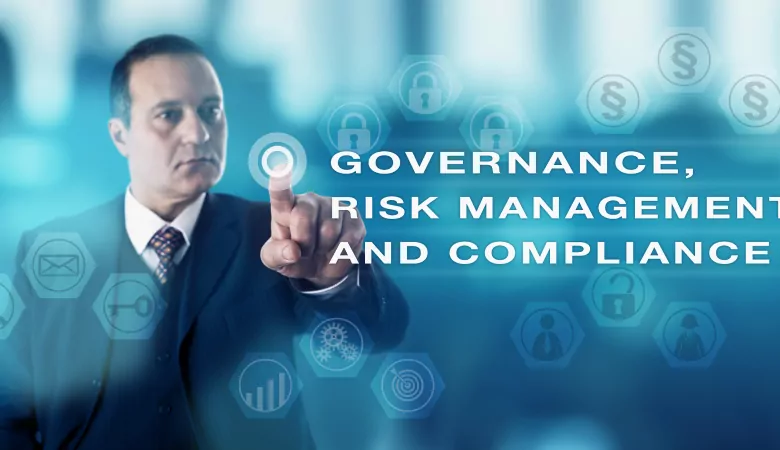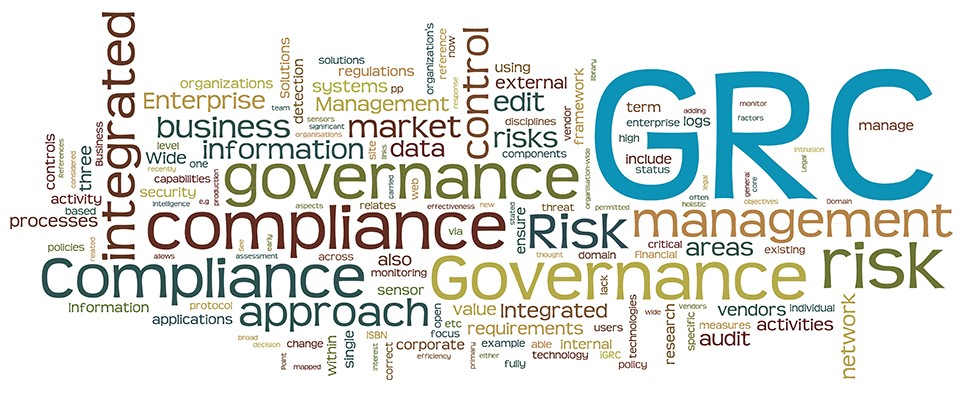Contents
What is Governance, Risk Management and Compliance (GRC)?
Governance, Risk Management, and Compliance (GRC) is a framework that enables organizations to manage their operations in a way that is compliant with relevant laws, regulations, and policies while also minimizing risks and ensuring good governance. GRC covers a wide range of activities and includes policies, procedures, and tools for managing these activities.
Governance refers to the processes and practices that organizations use to manage their operations and ensure that they are accountable to stakeholders. This includes setting policies, making decisions, and managing resources in a way that is consistent with the organization’s values and objectives. Governance also involves oversight and monitoring to ensure that these processes and practices are effective.
Risk management is the process of identifying, assessing, and mitigating risks that may affect an organization’s operations, assets, or reputation. This includes identifying potential risks, assessing their likelihood and potential impact, and developing strategies to manage and minimize them.
Compliance refers to the adherence to laws, regulations, and policies that govern an organization’s operations. This includes ensuring that the organization’s operations are conducted in a manner that is consistent with relevant laws and regulations, as well as internal policies and procedures.
Importance of Governance, Risk Management and Compliance
The importance of Governance, Risk Management, and Compliance in the workplace cannot be overstated. A robust GRC program helps organizations to:
1. Identify and mitigate risks
A good GRC program helps organizations to identify potential risks and develop strategies to mitigate them. This helps to protect the organization’s assets, reputation, and stakeholders.
2. Ensures compliance
Compliance with relevant laws, regulations, and policies is critical for organizations to avoid penalties, legal disputes, and reputational damage.
3. Promotes good governance
Good governance is essential for the long-term success of any organization. A GRC program can help to promote transparency, accountability, and ethical behavior within the organization.
4. Increased efficiency
GRC can help organizations to streamline their operations by identifying inefficiencies and developing strategies to address them.
Challenges to GRC Implementation in the Workplace
Despite the immense utility of GRC, its implementation in the workplace however, faces hurdles. Some of the common challenges include:
1. Lack of resources.
Implementing a GRC program requires resources, including personnel, technology, and funding. Smaller organizations may struggle to allocate sufficient resources to implement a robust GRC program.
2. Resistance to change
Despite the obvious benefits of GRC programs to organizations, its implementation in the workplace is fraught with resistance. Implementing a GRC program may require changes to existing processes and procedures, which can be difficult to implement. Resistance to change can be a significant barrier to GRC implementation.
3. Lack of communication
A GRC program requires communication and collaboration across different departments and stakeholders within an organization. This is however difficult to actualize. Without effective communication, it can be challenging to implement a GRC program successfully.
4. Complexity
GRC can be a complex framework that involves a wide range of activities and stakeholders. Without careful planning and execution, it can be challenging to implement a GRC program that is effective and sustainable.
See Also: Why Sustainability Training is Important for Employees
Summary
In conclusion, GRC is an essential framework for organizations to manage their operations effectively, minimize risks, and ensure compliance. Implementing a robust GRC program can be challenging, but the benefits are significant, including increased efficiency, good governance, and protection of the organization’s assets and reputation.
Because Governance, Risk Management and Compliance is so important, it’s imperative that employees are adequately trained on its implementation. Governance, Risk Management and Compliance workshops from Indepth Research Institute (IRES) would go a long wat of equipping employees with the prerequisite skills to make GRC programs successful.
We have a firm belief that every organization has a unique purpose only they can fulfil in this world. We work with you in organizing your resources to exploit opportunities so that you can fulfil your purpose and realize full potential. We build the capacity of people, processes and systems for organizational success and growth as well as nurturing a thriving ecosystem.
Ready to enhance your skills and boost your career? Explore our corporate training programs now and start your journey to success.









Comment here